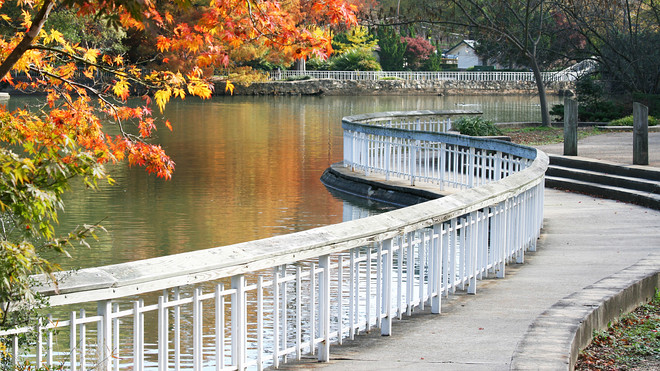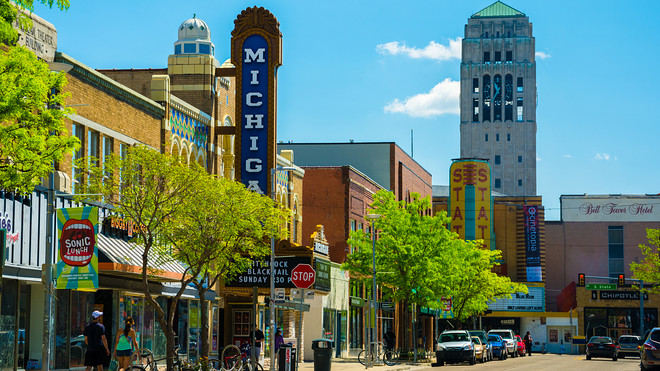Dear MarketWatch,
We are an Asian Indian couple with about $50,000 a year to spend. We can also afford to buy a house in addition to this. Please help us find places where it doesn’t get too hot in the summer (or colder than Boston in the winter). We also want to live in a place where people are used to and accept different races of people — maybe a college town?
Please help us retire!
Victor
Dear Victor,
Not too hot, not too cold, plus acceptance of whoever we are — that Goldilocks scenario is what so many people are looking for.
With $50,000 to spend in addition to housing, there are many places that can work for you. There also are many other factors you may want to consider that reflect your own interests, so please take these suggestions as a starting point. If you’re looking for a substantial South Asian community, search for an Indian grocery store. Cary, N.C., and Ann Arbor, Mich., both came up when I looked at a list of Patel Brothers supermarkets, for example. This list of affluent and diverse communities with more than 60,000 residents may inspire other possibilities.
You don’t say where you live, unless that reference to Boston weather is my hint. If so, the high property values there could leave you with more money than most for your next house and give you a wider list.
I assume you’ve considered and ruled out the New York tri-state area, which certainly fits for diversity but has the downside of cost. I’m ruling out Florida, Texas and other southern states because of the heat.
Here are three college towns to consider. An added bonus: none of these states tax Social Security benefits.
As always, make sure you see these places at their worst as well as at their best, whether that reflects the weather, an empty campus or something else. Consider a short-term rental to better explore the area, interact with more residents and decide whether it’s truly a good fit. Talk to a tax pro if that’s a big concern.
Moves are costly; you don’t want to make a big mistake.

Winding walking path in Pullen Park, Raleigh, N.C.
Getty Images/iStockphoto
The Research Triangle area in North Carolina
You have three major universities anchoring this region. I’m not going to take sides given the college sports rivalries down there or even try to pick which city is better — I’ll leave that to readers in the comments section.
Gentrifying Raleigh, the state capital, is home to North Carolina State University and is the biggest with 1.4 million people, “rough-cut gem” Durham, with close to 285,000 people, has Duke University, and Chapel Hill has the University of North Carolina and about 60,000 residents. Don’t forget fast-growing, suburban Cary as well as Wake Forest (just don’t look for Wake Forest University here) and Carrboro, where the heart of downtown is … the mostly organic food co-op.
Homes are most expensive in Chapel Hill and cheapest in Raleigh and Durham. Using Realtor.com, which like MarketWatch is owned by News Corp., here’s what’s on the market now in Raleigh, Durham, Cary and Chapel Hill.
Summers may get a bit hot, but the mountains and the coast are just a few hours away. The flip side is that the average low in January is 30 degrees. As for travel, the region boasts a large airport.

Downtown Ann Arbor.
Getty Images
Ann Arbor, Mich.
Here’s a quintessential college town: the University of Michigan and its 43,000 students permeate this city of 121,000. The university is ranked third among public universities by U.S. News & World Report, and it has a large, walkable downtown.
Livability.com, which called Ann Arbor the best place to live in America in its 2018 rankings, praised it as a “bustling, progressive, park-filled paradise” and described it “nothing if not eclectic.”
When you’ve had enough of a college town, you can always head to Detroit just 45 minutes away, eventually cross the border to Canada or grab a flight from Detroit Metropolitan Wayne County Airport.
Take a look at the housing market, using current listings on Realtor.com.
Weather-wise, this won’t be that different from Boston. But when you’re retired, you can always choose to travel during the winter.

A vineyard in Oregon’s Willamette Valley.
iStockphoto
Corvallis, Ore.
Would you go west? This city of about 60,000 is cheaper than hipster Portland and has been ranked as one of America’s best college towns (Oregon State University, with about 29,000 students, is here). It’s walkable, has free public transportation, is one of the most bike-friendly communities in the country and offers plenty of outdoor possibilities.
Winters are warmer than Boston — the average lows are just 36 degrees. Average summer highs are in the lower 80s. The rap on Oregon weather, though, is rain. You’ll certainly get plenty of that in the winter, but this town is drier than Eugene less than an hour to the south. And is rain a fair trade-off for minimal snow?
Corvallis isn’t as diverse as either Raleigh or Ann Arbor, but it’s one of the more liberal areas in this state. It’s at the center of the Willamette Valley, an area surrounded by mountains and home to Oregon’s wine country. Livability.com says “it’s like living in a national park.” Plus you’d be an hour from Oregon’s rocky coast and less than two hours from Portland.
Homes are pricier than much of the Triangle and similar to Ann Arbor. Here’s what properties are on the market now.
Readers, where should this couple move?










Add Comment